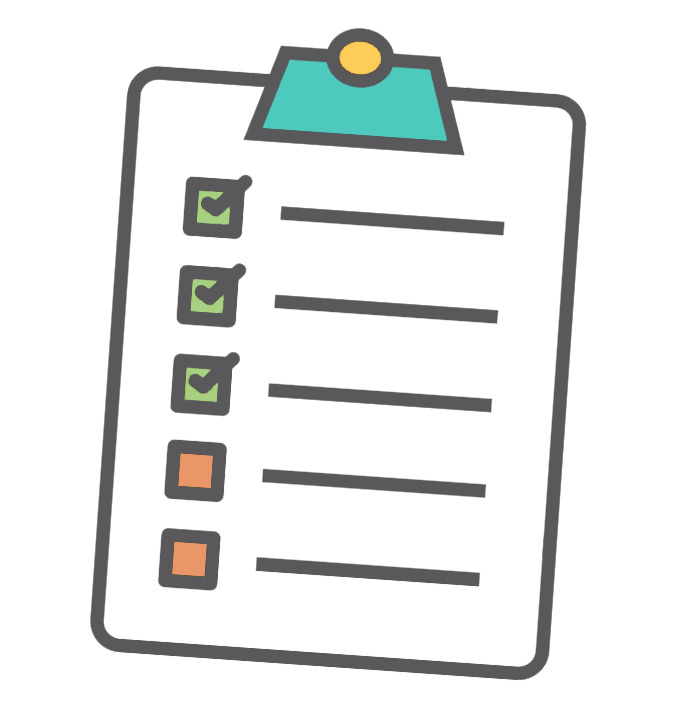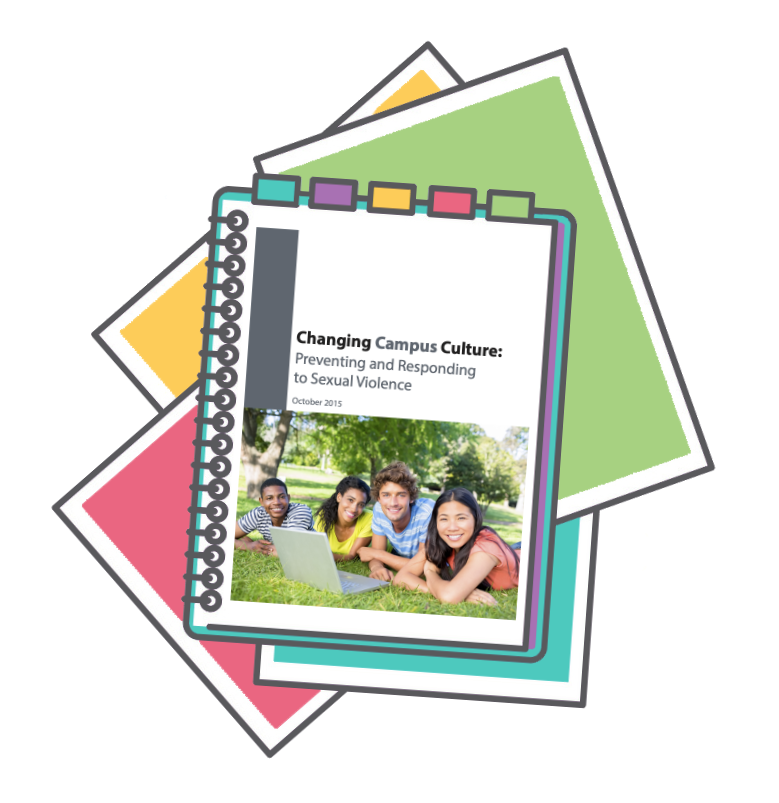
Taking Bold Action
Using data to prioritize those who have historically been marginalized
Taking Bold Action is…
A two year project that brings campus professionals together to prioritize groups that have historically been marginalized, such as students of color and/or LGBTQ+ students, in the design and dissemination of campus climate surveys.
This data equity project does not wait for “results in hands” to begin taking action to center the experiences of priority groups on campus.
The first BOLD ACTION is adopting an anti-oppression approach that recognizes structures, patterns, and norms that unfairly privilege some groups over others, regardless of individual merit or behavior. Adopting an anti-oppression approach includes identifying groups that may have been marginalized in past surveys, and prioritizing those groups’ experiences in all decisions related to data collection and analysis.
The second BOLD ACTION is coming together across campuses to collaborate. In each of the Taking Bold Action (TBA) years, up to twelve campuses will work in relationship with each other to share information, data, and insight.
The third BOLD ACTION is creating an active partnership between the person traditionally responsible for distributing the Ohio Department of Higher Education (ODHE) Benchmark surveys – usually the Title IX Coordinator – and another unit on campus that is set up specifically to increase opportunities for the priority groups – often the Director of Diversity, Equity, and Inclusion.
The fourth BOLD ACTION is applying the principles of emergent strategy offered by adrienne maree brown to our data use practices. Emergent strategy is oriented towards developing shared intention, and shaping and holding change. This position stands in contrast to the originally-proposed methodology of collaborative inquiry, which was designed to produce knowledge and meaning.

Cohort 1
Includes:
Antioch College,
Northeast Ohio Medical University (NEOMED), and
Ohio University.
Cohort 1 campuses prioritized Black, Latinx, and multicultural students, LGBTQ+ students, and students with disabilities.
To better understand the experiences of priority groups, Cohort 1 reviewed the best available evidence. Two key resources helped situate the development of new survey questions in the expertise and lived experiences of students.
First, the work of Jennifer Hughes, Abigail Camden, & Tenzin Yangchen guided the creation of a new panel of questions about social identity. These scholars were honors students at the time they wrote their paper: Rethinking and Updating Demographic Questions.
Second, Tiffany Brannon and Andy Lin's empirical validation studies provided the conceptual and methodological basis of new survey questions about sense of identity and belonging on campus. Their award-winning scholarship, Pride and Prejudice Pathways to Belonging, combined quantitative analysis of longitudinal survey data with qualitative analysis of demands for inclusion that came from students following the I, Too, Am Harvard campaign.
The unique partnership structure at each campus informed their respective survey designs and approaches to sampling and recruitment.

Cohort 2
… could include your campus.
There are 12 available spots. Applications will be reviewed on a rolling basis in order to select Cohort 2 members by October of 2022. We hope to have representation from three main types of campuses in Ohio: 4 year privates, 4 year publics, and 2 year public institutions.
Who can apply?
To be part of Cohort 2, your campus must participate in ODHE’s Changing Campus Culture initiative. Applicants should demonstrate:
1. A partnership or working group with accountability for improving campus conditions for priority groups;
2. Coordination between Title IX and at least one additional department working directly with priority groups;
3. Connections to priority groups through student organizations, social media, networks, or other strategies;
4. Creativity and persistence to meet sample size goals; and
5. Capacity to contribute to the group.
What are the expectations of participating campuses?
Once selected, Cohort 2 campuses will:
1. Select one or more priority populations;
2. Identify primary contact people, including at least one paid employee that works directly with the priority groups;
3. Meet with Cohort 2 campus representatives to generate empirical questions to ask of the data;
4. Actively engage in designing surveys; and
5. Collect survey responses, including all Benchmark questions, from students and employees by May 15, 2023.
Following data collection, Consultants will:
1. Analyze data to generate actionable findings;
2. Create customized reports for each participating campus;
3. Facilitate group meaning-making sessions with all campuses participating in Cohort 2;
4. Conduct campus-specific meaning-making sessions with stakeholders at each campus; and
5. Provide up to ten additional consulting hours to develop a digital display of actionable findings and planned next steps.
Meet the Team
Sharon M. Wasco, PhD
Dr. Wasco is a community psychologist, evaluator, and independent data use consultant who began her career as a case worker at the Cuyahoga County Department of Children and Family Services. With each project she takes on, Sharon re-dedicates herself to eliminating sexual violence in this lifetime. Commitments to diversity and collaboration guide her work.
Email: sharon@smwconsultingllc.com
Amber Wallace
Amber Wallace is a rising third-year student in the Clinical-Community Psychology Ph.D. program at the University of South Carolina. Her research is dedicated to examining facets of interpersonal violence, including sexual violence and drugging, from the intersectionality orientation. In her future career, Amber hopes to aid in the eradication of the burden that interpersonal violence reaps.
Email: amber@smwconsultingllc.com

Resources
You do not have to be a Cohort member to Take Bold Action on your campus, in your survey design, or in your data use practices. The consultant team, working in partnership with Cohort 1 participants, have created several resources. These are posted here for those who would like to explore the universe of alternatives in using data to guide action.
Recordings
Other Documents
Since 2015...
Campuses across Ohio have been working to change aspects of campus culture that tolerate sexual misconduct and other forms of discrimination. The Ohio Department of Higher Education (ODHE) leads these efforts with five recommendations:
Use data to guide action,
Empower staff, faculty, campus law enforcement and students to prevent and respond to sexual violence through evidence-based training,
Communicate a culture of shared respect and responsibility,
Develop a comprehensive response policy, and
Adopt a survivor-centered response.
These recommended strategies have been implemented synergistically on approximately 80 campuses in Ohio, leading to observable differences over time. For example, between 2018 and 2021, there were increases in students’ ratings of how confident they are that their campus will follow the formal procedures to address complaints of sexual misconduct. More importantly, among students who did experience sexual misconduct on campus, significantly more survivors used their campus’ formal procedures to report the misconduct.
However, the prevalence of sexual misconduct on Ohio’s campuses has not decreased significantly. Harm is still taking place.










